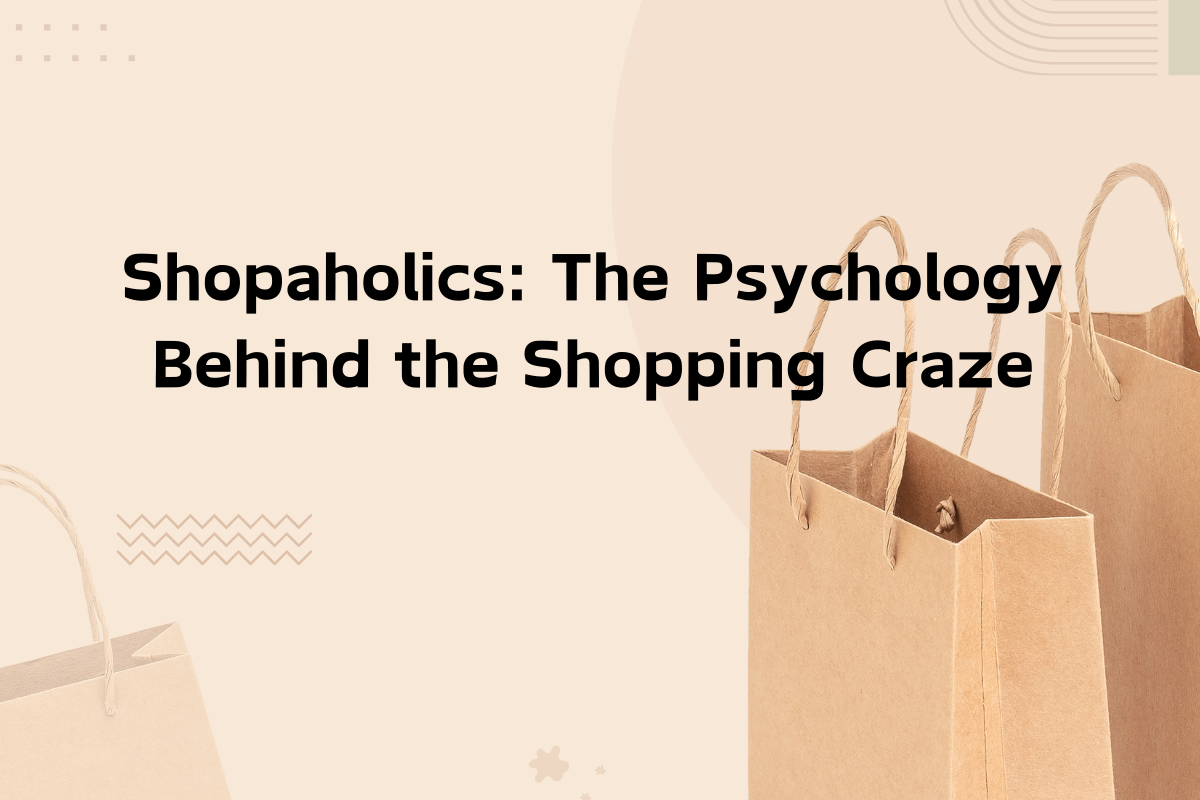Shopaholics: The Psychology Behind the Shopping Craze
In today's consumer-driven society, the term "Shopaholics" has become increasingly prevalent, referring to individuals who compulsively engage in shopping activities. Let's delve into the psychological aspects behind this shopping craze.

Understanding Shopaholics-剁手党 (dòu shǒu dǎng)
Shopaholics, often referred to as "剁手党” in Chinese, are individuals who have an irresistible urge to shop excessively, regardless of their financial situation. Shopping 购物 (gòu wù) becomes not just a necessity but a form of emotional fulfillment or escape from stress and anxiety.
购物 (gòu wù), noun, shopping
Examples:
- I like to go shopping on weekends.
我喜欢周末去购物。
Wǒ xǐhuān zhōumò qù gòuwù. - Today we are going shopping at the shopping mall.
今天我们去购物中心购物。
Jīntiān wǒmen qù gòuwù zhōngxīn gòuwù.

The Psychology of Shopping Addiction
- Emotional Fulfillment: For many shopaholics, the act of shopping triggers the release of dopamine, a neurotransmitter associated with pleasure and reward. This creates a temporary feeling of happiness and fulfillment, which they seek repeatedly through shopping.
- Escapism: Shopping serves as a coping mechanism for dealing with negative emotions such as stress, boredom, or loneliness. It provides a temporary distraction from life's challenges and offers a sense of control and excitement.
- Self-Esteem Boost: Acquiring new possessions can temporarily boost one's self-esteem and confidence. For some shopaholics, buying new clothes, gadgets, or luxury 奢侈(shē chǐ) items serves as a validation of their worth and status in society.
奢侈 (shē chǐ), noun, luxury
Examples:
- This car brand is synonymous with luxury.
这个汽车品牌是奢侈的代名词。
Zhège qìchē pǐnpái shì shēchǐ de dàimíngcí. - Many dream of living a life of luxury.
许多人梦想过奢侈的生活。
Xǔduō rén mèngxiǎng guò shēchǐ de shēnghuó.
Triggers and Influences
- Advertising and Social Media: Constant exposure to advertisements, promotions, and influencers on social media platforms exacerbates the urge to shop among shopaholics. The desire to keep up with trends and maintain a certain image fuels their shopping habits.
- Peer Pressure: Social pressure from friends, family, or colleagues who also indulge in excessive shopping can normalize such behavior and encourage shopaholics to continue their spending habits.
Key Sentences:
- She's a shopaholic, always spending money on things she doesn't need, such a "dou shou dang".
她是一个购物狂,总是花钱买一些不需要的东西,真是个“剁手党”。
Tā shì yīgè gòuwù kuáng, zǒngshì huāqián mǎi yīxiē bù xūyào de dōngxī, zhēnshi gè "dòu shǒu dǎng". - I can't control myself when there's a sale, I turn into a "dou shou dang" every time.
一有打折,我就控制不住自己,每次都变成一个“剁手党”。
Yī yǒu dǎzhé, wǒ jiù kòngzhì bùzhù zìjǐ, měi cì dū biànchéng yīgè "dòu shǒu dǎng". - Being a "dou shou dang" can be fun, but it's important to keep track of your spending.
成为一个“剁手党”可能很有趣,但是要记得控制自己的花费。
Chéngwéi yīgè "dòu shǒu dǎng" kěnéng hěn yǒuqù, dànshì yào jìdé kòngzhì zìjǐ de huāfèi.